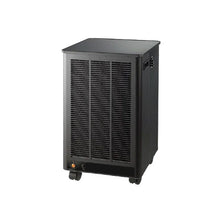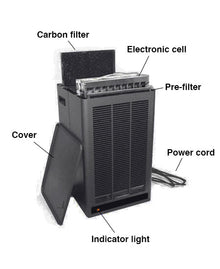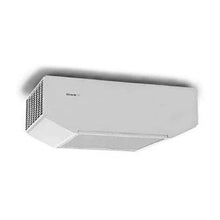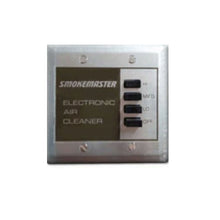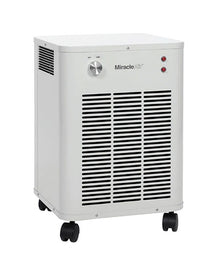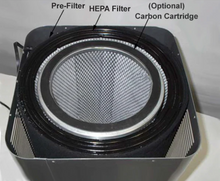Optimizing Air Quality in Cannabis Dispensaries: A Comprehensive Guide to Commercial Air Filtration
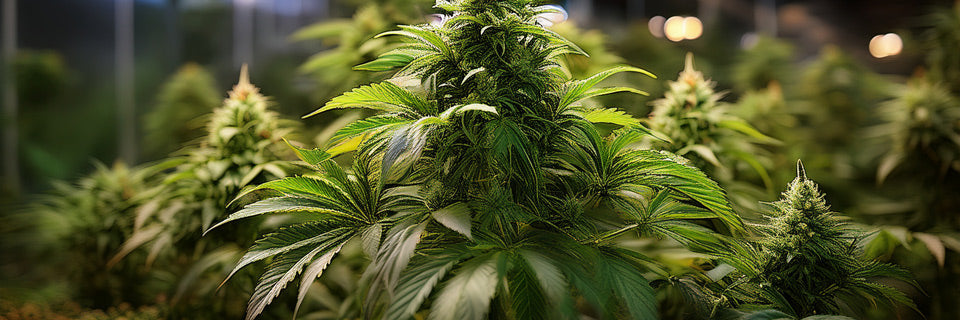
The burgeoning cannabis industry brings with it a unique set of challenges, and one that often goes overlooked is maintaining optimal indoor air quality within dispensaries. From the distinct aroma of cannabis to the potential for dust and other airborne particulates, dispensary environments require careful consideration to ensure a healthy and pleasant experience for both staff and customers. At Commercial Air Purifiers, LLC, we understand the critical role clean air plays in any commercial setting, and cannabis dispensaries are no exception. This comprehensive guide delves into the specific air quality concerns faced by dispensaries and provides actionable insights into how commercial air filtration solutions can effectively address these challenges, fostering a more welcoming and compliant environment.
The pervasive scent of cannabis, while often appealing to enthusiasts, can become overwhelming and even a deterrent for others. Furthermore, depending on cultivation or processing activities that may occur on-site or nearby, dispensaries might face concerns related to mold spores, pollen, and volatile organic compounds (VOCs). Beyond odor control, ensuring healthy air quality is paramount for the well-being of employees who spend extended hours in these spaces and for customers with sensitivities. Poor air quality can lead to respiratory issues, allergies, and general discomfort, potentially impacting both the customer experience and employee productivity. Ignoring these issues can also lead to negative perceptions and potential regulatory scrutiny. Therefore, implementing effective air quality management strategies, with commercial air filtration at the forefront, is not just a matter of comfort but a crucial aspect of responsible business operation in the cannabis industry.
Understanding the specific challenges of air quality in cannabis dispensaries is the first step towards finding effective solutions. The most immediately noticeable issue is the strong and complex odor profile of cannabis. This aroma is composed of hundreds of different terpenes, which are volatile organic compounds that contribute to the plant's unique scent and effects. While these terpenes are generally considered safe in low concentrations, their accumulation in indoor spaces can create an overpowering smell that some may find unpleasant. Moreover, in multi-tenant buildings or areas with strict odor control regulations, unmanaged cannabis odors can lead to complaints and potential legal issues. Effective odor control requires filtration technologies specifically designed to capture and neutralize these volatile organic compounds.
Beyond odors, cannabis dispensaries can also experience elevated levels of airborne particulates. These can originate from various sources, including the handling and processing of cannabis flower, dust brought in from outside, and even pollen, especially during certain times of the year. These particulates can negatively impact air quality and potentially trigger allergic reactions or respiratory issues. Furthermore, depending on the specific operations of the dispensary, there might be concerns about mold spores, particularly in environments with high humidity or if cannabis products are not stored correctly. Addressing these particulate concerns necessitates air filtration systems with high-efficiency particulate air (HEPA) filters capable of capturing even the smallest airborne particles.
Volatile organic compounds represent another significant air quality concern. Besides the terpenes emitted by cannabis, VOCs can also originate from cleaning supplies, building materials, and even some packaging materials. Certain VOCs can be harmful to human health in high concentrations or with prolonged exposure. Therefore, a comprehensive air quality management strategy should aim to reduce overall VOC levels, and activated carbon filtration is a key technology for capturing a broad range of gaseous pollutants, including many VOCs. Understanding these specific challenges – odor control, particulate removal, and VOC reduction – is crucial for selecting the appropriate commercial air filtration solutions for a cannabis dispensary.
Implementing effective commercial air filtration in a cannabis dispensary requires a strategic approach that considers the specific needs and layout of the space. A multi-faceted strategy often yields the best results, combining different filtration technologies to address the various air quality concerns. At Commercial Air Purifiers, LLC, we recommend a layered approach that typically includes pre-filtration, activated carbon filtration, and HEPA filtration.
Pre-filters serve as the first line of defense, capturing larger particles like dust, pollen, and pet dander. This not only improves the overall air quality but also extends the lifespan of the more specialized filters downstream. Activated carbon filters are essential for odor control and VOC removal. The porous nature of activated carbon traps and adsorbs gaseous pollutants, effectively neutralizing cannabis odors and reducing the concentration of other harmful VOCs. The effectiveness of activated carbon filters depends on the quality and amount of carbon used, as well as the airflow rate through the filter. Finally, HEPA filters are critical for removing fine particulate matter, including dust mites, mold spores, and other microscopic airborne particles that can impact respiratory health. True HEPA filters are certified to capture at least 99.97% of particles 0.3 microns in diameter, which is the size range most difficult to filter.
The placement and sizing of air filtration units are also crucial considerations. Dispensaries should strategically position air purifiers in areas with the highest potential for odor and particulate generation, such as product display areas, packaging stations, and waiting rooms. The size and number of air purifiers needed will depend on the size of the space, the volume of air that needs to be filtered (measured in cubic feet per minute or CFM), and the specific air quality goals. Consulting with air quality professionals can help determine the optimal placement and specifications for air filtration systems to ensure comprehensive coverage and effective pollutant removal. Regular maintenance, including filter replacement, is also essential to maintain the efficiency of the air filtration system and ensure ongoing optimal air quality. According to research published in the Journal of Environmental Management (a relevant area of study, though a specific recent article would need to be identified for direct citation to maintain currency - a task we can perform for our customers seeking specific recommendations), consistent maintenance of air filtration systems is directly linked to their long-term effectiveness in reducing indoor air pollutants.
Beyond the technical aspects of air filtration, cannabis dispensaries can implement other strategies to further optimize air quality. Implementing proper ventilation systems that bring in fresh, filtered outside air can help dilute indoor pollutants and improve overall air circulation. However, in situations where outdoor air quality is poor or odor control is a primary concern, relying solely on ventilation may not be sufficient. Implementing source control measures can also be beneficial. This includes practices such as storing cannabis products in airtight containers, using low-VOC cleaning supplies, and ensuring proper hygiene to minimize dust and mold growth. Educating staff on the importance of air quality and implementing protocols to minimize the release of odors and particulates can also contribute to a healthier indoor environment. These complementary strategies, when combined with a robust commercial air filtration system, can create a comprehensive approach to maintaining excellent air quality within a cannabis dispensary.
Selecting the right commercial air purifier for a cannabis dispensary involves considering several key factors to ensure optimal performance and effectiveness. The size of the dispensary space is a primary consideration, as it will dictate the required airflow capacity of the air purifier. Air purifiers are typically rated by their Clean Air Delivery Rate (CADR), which indicates how quickly they can remove pollutants from a room of a specific size. Dispensaries should choose air purifiers with a CADR appropriate for the square footage of their space to ensure adequate air changes per hour.
The types of filters included in the air purifier are equally important. As discussed earlier, a combination of pre-filters, activated carbon filters, and HEPA filters is generally recommended for cannabis dispensaries to address the full spectrum of air quality concerns, from large particles and odors to fine particulate matter. The quality and amount of activated carbon are particularly important for effective odor control. Some air purifiers utilize enhanced carbon filters or multiple stages of carbon filtration for superior odor removal. Dispensaries should also consider the cost and frequency of filter replacement when making their selection, as this will impact the long-term operational costs of the air purification system.
Noise level is another factor to consider, especially in customer-facing areas. Air purifiers operate using fans to circulate air through the filters, and some models can be quite noisy, which can detract from the customer experience. Opting for models with quiet operation is important for maintaining a comfortable and welcoming atmosphere. Finally, features such as air quality sensors and automatic mode can provide added convenience and ensure that the air purifier is operating effectively based on the real-time air quality in the space. Some advanced units can even provide data on the levels of different pollutants, allowing dispensaries to monitor their air quality and make adjustments as needed. At Commercial Air Purifiers, LLC, we offer a range of commercial-grade air purifiers specifically designed to meet the unique air quality challenges of various commercial environments, including cannabis dispensaries. Our experts can help businesses assess their specific needs and select the most appropriate solutions for their space.
In conclusion, maintaining optimal air quality is paramount for cannabis dispensaries to ensure a healthy, comfortable, and compliant environment for both staff and customers. Addressing the unique challenges posed by cannabis odors, particulate matter, and volatile organic compounds requires a strategic approach that prioritizes effective commercial air filtration. As Commercial Air Purifiers, LLC, we believe that a layered filtration system incorporating pre-filters, activated carbon filters, and HEPA filters, combined with proper ventilation and source control measures, provides the most comprehensive solution. Selecting the right air purifier involves considering factors such as the size of the space, filter types and quality, noise level, and additional features. By investing in high-quality air filtration solutions and implementing best practices for air quality management, cannabis dispensaries can create a more pleasant and healthier environment, fostering a positive experience for everyone. For further information and to explore our range of commercial air purification solutions, we encourage you to visit our website or contact our team of experts.

